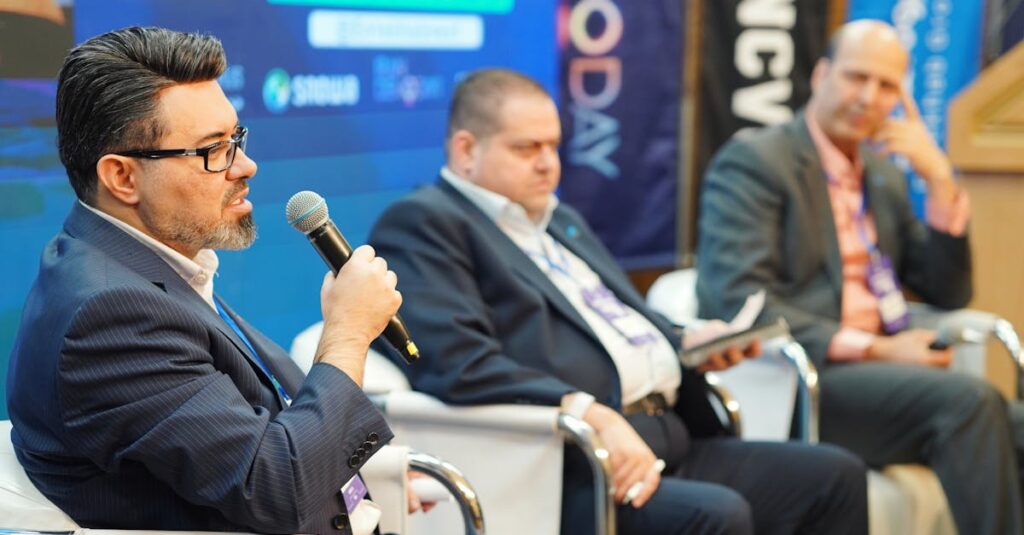When I think about the heart of any successful organization, the leadership team stands out as a crucial element. At Target, this team doesn’t just steer the ship; they shape the company’s culture, drive innovation, and ensure that every employee feels valued. With a blend of diverse experiences and a commitment to excellence, the Target leadership team exemplifies what it means to lead with purpose.
Understanding how this team operates can provide valuable insights for anyone looking to enhance their own leadership skills. From strategic decision-making to fostering an inclusive environment, there’s so much to learn from their approach. Join me as I explore the dynamics of the Target leadership team and uncover the strategies that contribute to their remarkable success.
Key Takeaways
- Crucial Role of Leadership: The Target leadership team significantly shapes the company’s culture, drives innovation, and values employee contributions, positioning the organization for success.
- Diverse Expertise: Comprising experienced professionals with varied backgrounds, the leadership team harnesses diverse perspectives to enhance decision-making and strategic direction.
- Inclusive Environment: Target’s leadership emphasizes inclusivity and collaboration, fostering a workplace where all employees feel valued and empowered to share their ideas.
- Data-Driven Decisions: By prioritizing data-driven strategies, the leadership team effectively meets customer needs while navigating market trends to maintain competitiveness in the retail landscape.
- Commitment to Innovation: The team focuses on technological advancements and process improvements, resulting in significant growth, especially in digital sales, adapting to changing consumer behaviors.
- Challenges and Adaptability: Target’s leadership faces challenges like market competition and technological changes, necessitating a proactive and flexible approach to sustain growth and relevance.
Target Leadership Team
The Target leadership team plays a crucial role in the company’s success. This team consists of experienced professionals who bring diverse perspectives and expertise to the organization. They focus on shaping a culture that values inclusivity and innovation, driving the company forward in a competitive retail landscape.
The leadership team leads by example, fostering a workplace environment that encourages collaboration and creativity. This approach enables employees at all levels to contribute ideas and take ownership of their roles.
 Each member of the leadership team possesses a track record of success in various industries, ensuring that Target benefits from a broad range of insights. Their commitment to employee development is evident through initiatives that support professional growth and career advancement.
Each member of the leadership team possesses a track record of success in various industries, ensuring that Target benefits from a broad range of insights. Their commitment to employee development is evident through initiatives that support professional growth and career advancement.
By emphasizing data-driven decision-making, the leadership team prioritizes customer needs and market trends. This strategy positions Target as a leader in retail, consistently meeting customer expectations while driving profitability.
The Target leadership team embodies a dedication to excellence, innovation, and inclusivity, making them a pivotal component of the company’s overall strategy. Understanding their operations and leadership style can provide valuable lessons for aspiring leaders.
Key Members of the Target Leadership Team
The Target leadership team comprises key executives who drive the company’s vision and operations. Each member plays a critical role in maintaining Target’s commitment to excellence and innovation.
Chief Executive Officer
The Chief Executive Officer (CEO) oversees overall operations and strategic direction. The current CEO, Brian Cornell, joined Target in 2014 and has a strong background in retail and consumer goods. Under his leadership, Target has focused on digital transformation and expanding its product offerings. Cornell emphasizes the importance of data-driven insights to meet evolving customer expectations.
Chief Financial Officer
The Chief Financial Officer (CFO) manages financial strategies and drives fiscal responsibility within the organization. The CFO at Target, Michael Fiddelke, brings extensive financial experience, having joined the company in 2019. Fiddelke focuses on optimizing financial performance while ensuring long-term growth. His leadership supports Target’s investments in technology and supply chain enhancements to better serve customers.
Chief Marketing Officer
The Chief Marketing Officer (CMO) directs Target’s marketing strategies and brand positioning. Christina Hennington, the current CMO, plays a pivotal role in shaping the company’s marketing efforts. She emphasizes engaging customer experiences through targeted campaigns and community connections. Hennington’s leadership ensures that Target remains relevant and resonates with diverse customer segments in a competitive retail landscape.
Leadership Strategies Employed
The Target leadership team employs specific strategies to maintain a strong organizational culture and drive success. Their focus on vision, mission, and effective communication fosters an environment of collaboration and innovation.
Vision and Mission
Target’s leadership team articulates a clear vision and mission statement that drives organizational direction. The vision emphasizes a commitment to making Target a preferred shopping destination by delivering exceptional value and experiences. The mission focuses on community engagement, sustainability, and continuous improvement, reflecting the team’s dedication to both customers and employees. This alignment creates a united front, ensuring that every initiative and decision reinforces the core values of the company.
Communication and Collaboration
Effective communication and collaboration stand at the forefront of the Target leadership team’s strategies. Regular town hall meetings, team huddles, and open-door policies promote transparency and foster a culture of trust. Collaboration extends beyond departments, with cross-functional teams tackling projects that require diverse expertise. This approach not only enhances problem-solving but also strengthens relationships among employees, heightening overall engagement and productivity.
Impact on Target’s Success
The leadership team’s influence on Target’s success manifests through innovation and corporate culture. Their strategic initiatives and inclusive environment create a solid foundation for growth and resilience.
Innovation and Growth
 The Target leadership team prioritizes innovation to drive growth. Their approach includes leveraging technology to enhance customer experience and streamline operations. For example, the digital transformation initiatives spearheaded by CEO Brian Cornell resulted in a significant increase in online sales, which accounted for over 20% of total revenue in 2022. The team consistently encourages creative problem-solving and embraces new ideas, ensuring that Target adapts to market trends. They invest in research and development, exploring areas like artificial intelligence and supply chain management, leading to enhanced efficiency and cost-effectiveness.
The Target leadership team prioritizes innovation to drive growth. Their approach includes leveraging technology to enhance customer experience and streamline operations. For example, the digital transformation initiatives spearheaded by CEO Brian Cornell resulted in a significant increase in online sales, which accounted for over 20% of total revenue in 2022. The team consistently encourages creative problem-solving and embraces new ideas, ensuring that Target adapts to market trends. They invest in research and development, exploring areas like artificial intelligence and supply chain management, leading to enhanced efficiency and cost-effectiveness.
Corporate Culture
The corporate culture at Target plays a vital role in sustaining its success. The leadership team fosters an inclusive atmosphere where employees feel valued and heard. Their emphasis on collaboration leads to increased employee engagement, with 85% of Target team members reporting high job satisfaction in an internal survey. Regular town hall meetings facilitate open dialogue, empowering employees at all levels to contribute ideas and feedback. Community engagement programs, supported by leadership, strengthen relationships both within the workforce and with customers. This commitment to a diverse and ethical workplace cultivates loyalty, driving not only employee retention but also attracting top talent from various industries.
Challenges Faced by the Leadership Team
The leadership team at Target encounters various challenges that influence their strategic decisions. These obstacles require a proactive approach and adaptability to maintain success.
Market Competition
Target faces intense competition from other retail giants, including Walmart and Amazon. The leadership team must continuously monitor market trends, competitor strategies, and consumer preferences to stay relevant. For instance, aggressive pricing tactics and expansive online marketplaces challenge Target’s market share. The leadership team tackles this pressure by regularly refining their product offerings and enhancing customer experiences, ensuring they attract and retain loyal shoppers.
Adapting to Change
Adapting to rapid technological advancements and shifting consumer behaviors presents a significant challenge. The leadership team navigates this dynamic landscape by prioritizing digital transformation and investing in innovative solutions. Changes in shopping habits, such as the rise of e-commerce and mobile shopping, necessitate a flexible operational strategy. By embracing change and proactively implementing technology-driven initiatives, the leadership team positions Target to thrive amid evolving market conditions and customer expectations.
Commitment to Innovation And Inclusivity
The Target leadership team’s commitment to innovation and inclusivity truly sets them apart in the retail landscape. Their strategic focus on employee engagement and customer satisfaction creates a thriving environment that drives success. By embracing diverse perspectives and fostering collaboration, they not only enhance their organizational culture but also position Target for sustainable growth.
As I reflect on their approach, it’s clear that effective leadership is about more than just making decisions. It’s about inspiring others and creating a culture where everyone feels valued. This is a powerful reminder for anyone looking to enhance their own leadership skills and make a meaningful impact in their organization.



